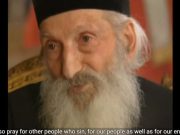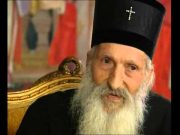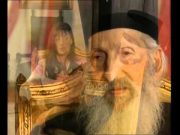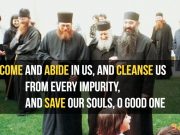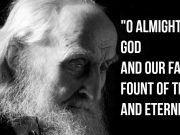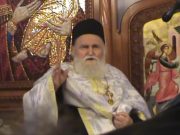Reflections on prayer in the life and writings of St. Anthony the Great In this video, Fr. Adrian Podaru emphasizes that “prayers become effective and really help only if those in need are honest with themselves and admit their weaknesses and inabilities.”
Fr. Dr. Adrian Podaru is Lecturer in Patristics at the Faculty of Orthodox Theology in Cluj-Napoca, Romania.
Fr. Adrian:
“A brother said to Abba Anthony, ‘Pray for me.’ The old man said to him, ‘Ί will have no mercy upon you, nor will God have any, if you yourself do not make an effort and if you do not pray to God.'”
At a first and superficial reading, it would seem that Saint Anthony the Great refuses to pray for his neighbor, showing a lack of compassion or empathy for the one in need. In reality, Abba emphasizes the necessity of personal prayer so that the prayers of others for you will be useful. No one is entitled to ask the other to pray for him as long as he himself does not pray to God for help in the struggle against his own weaknesses, failures, sins, passions.
If we’re going to use a sports image: you can’t just watch from the stands how your match is won by someone else’s effort, without you participating. The possibility of victory necessarily presupposes your entry into the field, into the heat of competition.
The second apophthegm, a bit longer, is the 19th, and I quote it in full: The brethren came to the Abba Anthony and said to him, ‘Speak a word; how are we to be saved?’ The old man said to them, ‘You have heard the Scriptures. That should teach you how.’ But they said, ‘We want to hear from you too, Father.’ Then the old man said to them, ‘The Gospel says, “if anyone strikes you on one cheek, turn to him the other also.”‘ (Matt. 5.39) They said, ‘We cannot do that.’ The old man said, ‘If you cannot offer the other cheek, at least allow one cheek to be struck.’ ‘ We cannot do that either,’ they said. So he said, ‘If you are not able to do that, do not return evil for evil,’ and they said, ‘We cannot do that either.’ Then the old man said to his disciple, ‘Prepare a little brew of corn for these invalids. If you cannot do this, or that, what can I do for you? What you need is prayers.’
St. Anthony the Great here draws our attention to the fact that in the ascetic struggle, in the climb to virtue that starts from the very bottom, prayers become effective and really help only if those in need are honest with themselves and admit their weaknesses and inabilities.
These brothers who ask for a word from Abba are weak, but honest. Being honest, there is hope that prayer can work on their spiritual growth. Shortly after the death of Saint Anthony the Great in 356, Bishop Serapion of Thmuis writes a letter to his disciples in which he portrays Anthony as a man of prayer, as the greatest intercessor, one who prayed for the whole world. His prayers were so powerful that the Church of Egypt was protected from the Arian heresy precisely through his intercession. Coincidentally or not, the capital of Egypt, the famous Alexandria, fell prey to Arianism immediately after the death of the Venerable [Anthony]. And Bishop Serapion concludes that Anthony’s prayer was a shield, an idea that will become well known in the spirituality of the Church.
Prayer holds the world together, prayer renews the world, prayer saves the world.

 Română
Română
